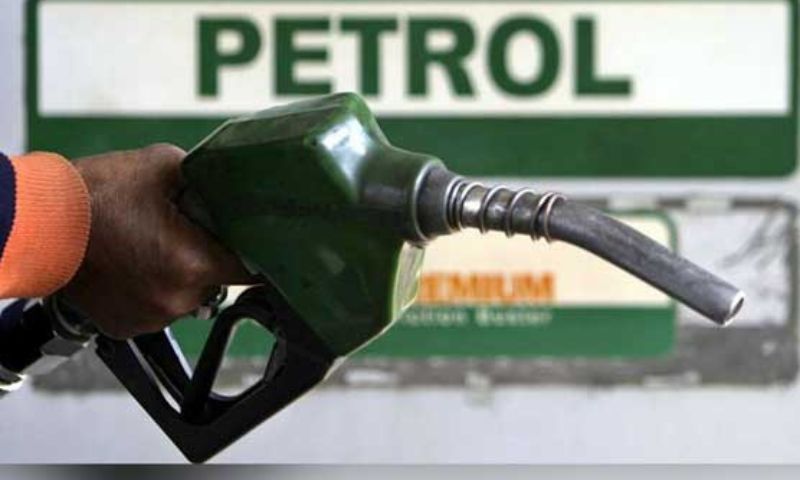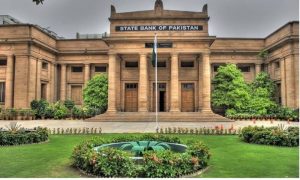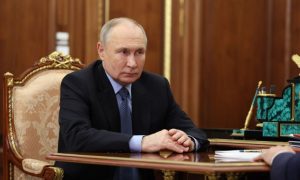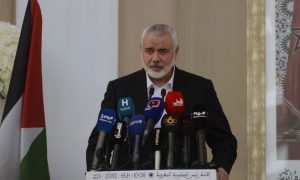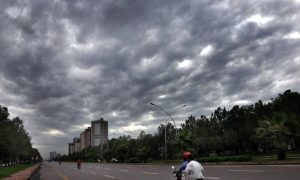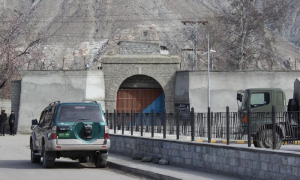ISLAMABAD: Pakistan’s Finance Minister Mohammad Aurangzeb has unveiled the budget for the next financial year, proposing an increase in the maximum limit of petroleum development levy (PDL) on diesel and petrol by up to Rs80 per litre.
In his budget speech, the minister said that the government will target a budget deficit of 6.9 percent of its GDP. The Finance Bill 2025 has proposed a maximum PDL limit on high-speed diesel oil and petrol from Rs20 to Rs80 per litre. Moreover, the PDL on LPG has been kept unchanged at Rs30,000 per metric tonne, the minister said.
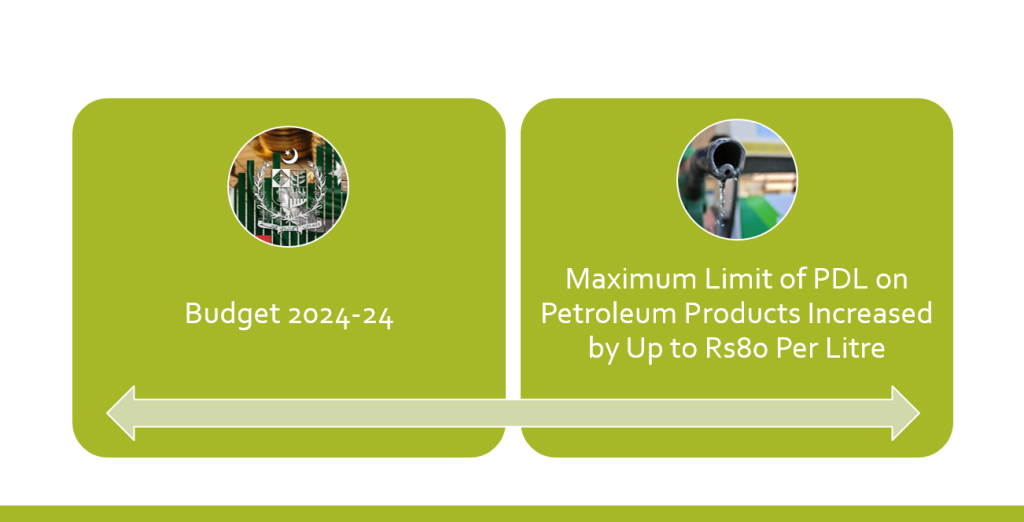
Amid efforts to increase revenue collection, as Pakistan seeks a bailout from the IMF, the government took the decision to increase the levy on petroleum products.
The government has also set a tax revenue target of 13 trillion rupees for the year starting July 1, a near 40 percent jump from the current fiscal year, to strengthen the case for a new bailout agreement with the IMF.
While outlining the fiscal budget 2024-25 points, the Finance Minister said that the gross domestic project (GDP) growth target for the fiscal year 2024-25 is fixed at 3.6 percent, whereas the inflation rate is expected to remain 12 percent.
Muhammad Aurangzeb said that the budget deficit to GDP during the period under review is estimated at 6.9 percent, whereas the primary surplus during the review period is projected at 1.0 percent of the GDP.
The minister said that the Revenue collection of the Federal Board of Revenue is estimated to be Rs12,970 billion during upcoming fiscal year, adding that tax revenue collection during the current fiscal year grew by 38 percent and the provincial share would be Rs7,438 billion.
He said that the non-tax revenue targets of the federation are fixed at Rs3,587 billion, whereas the net income of the federal government would be Rs9,119 billion.
The total expenditures of the federal government is estimated at Rs18,877 billion out of the total amount of Rs9,775 billion would be spent on interest payments.
The government has allocated Rs1,400 billion for the Public Sector Development Program in its current budget, adding that an additional amount of Rs100 billion would be allocated under Public Private Partnership, he added.
This year, he said, over all development budget was the highest in the country’s history comprising Rs1,500 billion.
Meanwhile, an amount of Rs1,014 billion is also allocated for pension expenses, adding that Rs1,363 billion is allocated for the subsidy of the gas, electricity and other sectors.
The finance minister announced a 101 percent increase in the development budget, noting that 81 percent has been allocated for ongoing schemes and 19 percent for new schemes.
He also announced development projects in Azad Kashmir and merged districts, adding that completion of ongoing development projects will be the government’s top priority. “The government would focus on export, equity, empowerment, environment, and energy under the 5-E framework,” he added.
Aurangzeb said that 17 major development projects have been included in the budget.
The government has allocated Rs5 billion allocated for the Quaid-e-Azam Health Tower in Islamabad, Rs7bn for development projects in the poorest districts, Rs6bn for the Karakoram Highway project, Rs4bn for digitalization of the national economy, Rs2bn for the establishment of Danish school in Islamabad and Rs5bn for the establishment of 7 Danish schools in Azad Kashmir and Gilgit-Baltistan.
Referring to the energy projects, the minister said Rs21bn has been allocated for a 600 MW power plant in Jamshoro, Rs14bn for a 500 kV transmission line in Lahore, Rs18bn for the Karachi Coastal Power Project and Rs45bn for the Mohmand Dam Hydro Power Project.
The budget also includes relief measures for government employees, including: 25 percent increase in salaries for BPS1-16, 20 percent increase in salaries for BPS17-22 and 15 percent increase in pensions for retired employees. Meanwhile, minimum monthly wage has been increased from Rs 32,000 to Rs 37,000.









